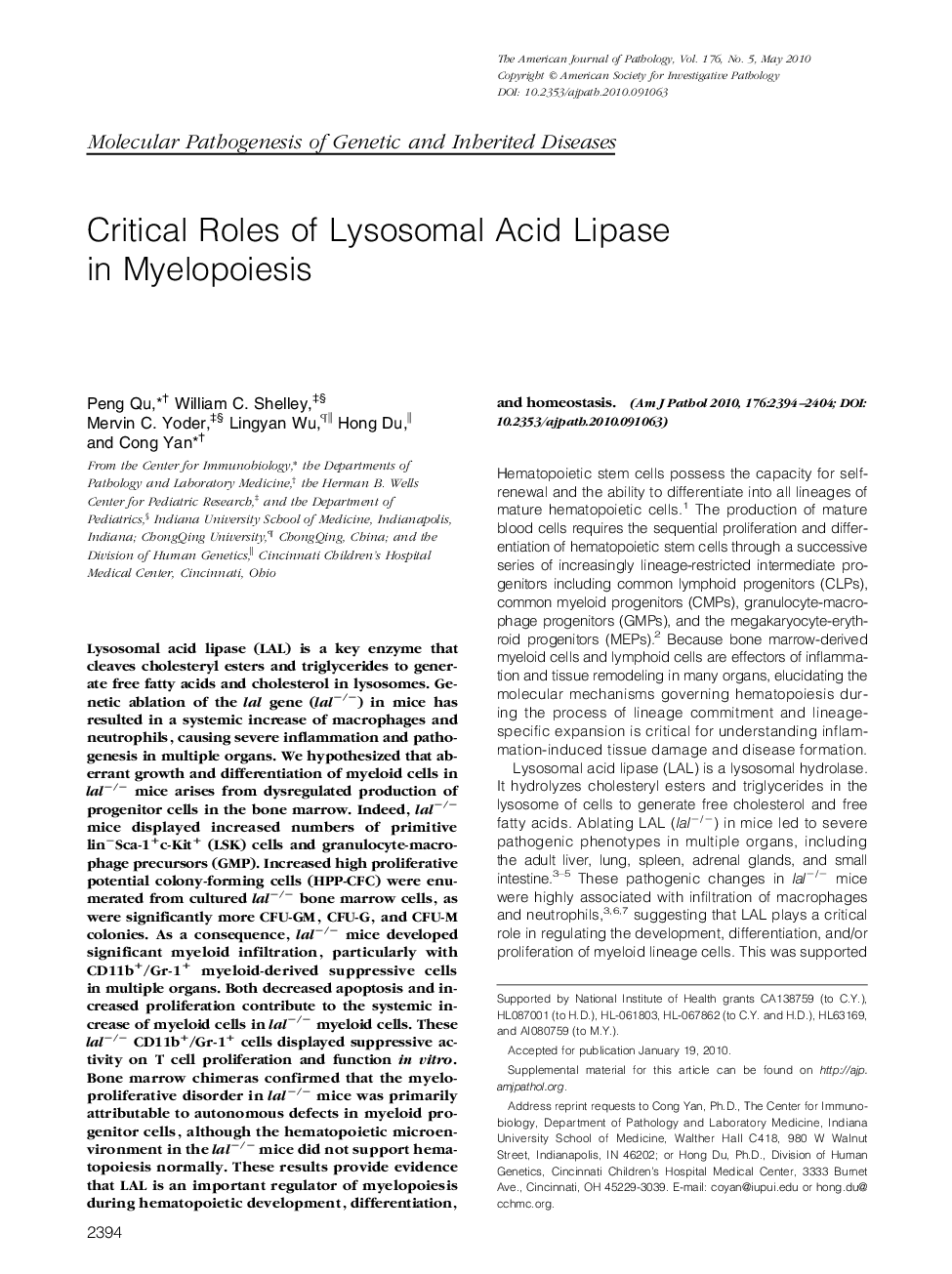| Article ID | Journal | Published Year | Pages | File Type |
|---|---|---|---|---|
| 5935735 | The American Journal of Pathology | 2010 | 11 Pages |
Lysosomal acid lipase (LAL) is a key enzyme that cleaves cholesteryl esters and triglycerides to generate free fatty acids and cholesterol in lysosomes. Genetic ablation of the lal gene (lalâ/â) in mice has resulted in a systemic increase of macrophages and neutrophils, causing severe inflammation and pathogenesis in multiple organs. We hypothesized that aberrant growth and differentiation of myeloid cells in lalâ/â mice arises from dysregulated production of progenitor cells in the bone marrow. Indeed, lalâ/â mice displayed increased numbers of primitive linâSca-1+c-Kit+ (LSK) cells and granulocyte-macrophage precursors (GMP). Increased high proliferative potential colony-forming cells (HPP-CFC) were enumerated from cultured lalâ/â bone marrow cells, as were significantly more CFU-GM, CFU-G, and CFU-M colonies. As a consequence, lalâ/â mice developed significant myeloid infiltration, particularly with CD11b+/Gr-1+ myeloid-derived suppressive cells in multiple organs. Both decreased apoptosis and increased proliferation contribute to the systemic increase of myeloid cells in lalâ/â myeloid cells. These lalâ/â CD11b+/Gr-1+ cells displayed suppressive activity on T cell proliferation and function in vitro. Bone marrow chimeras confirmed that the myeloproliferative disorder in lalâ/â mice was primarily attributable to autonomous defects in myeloid progenitor cells, although the hematopoietic microenvironment in the lalâ/â mice did not support hematopoiesis normally. These results provide evidence that LAL is an important regulator of myelopoiesis during hematopoietic development, differentiation, and homeostasis.
